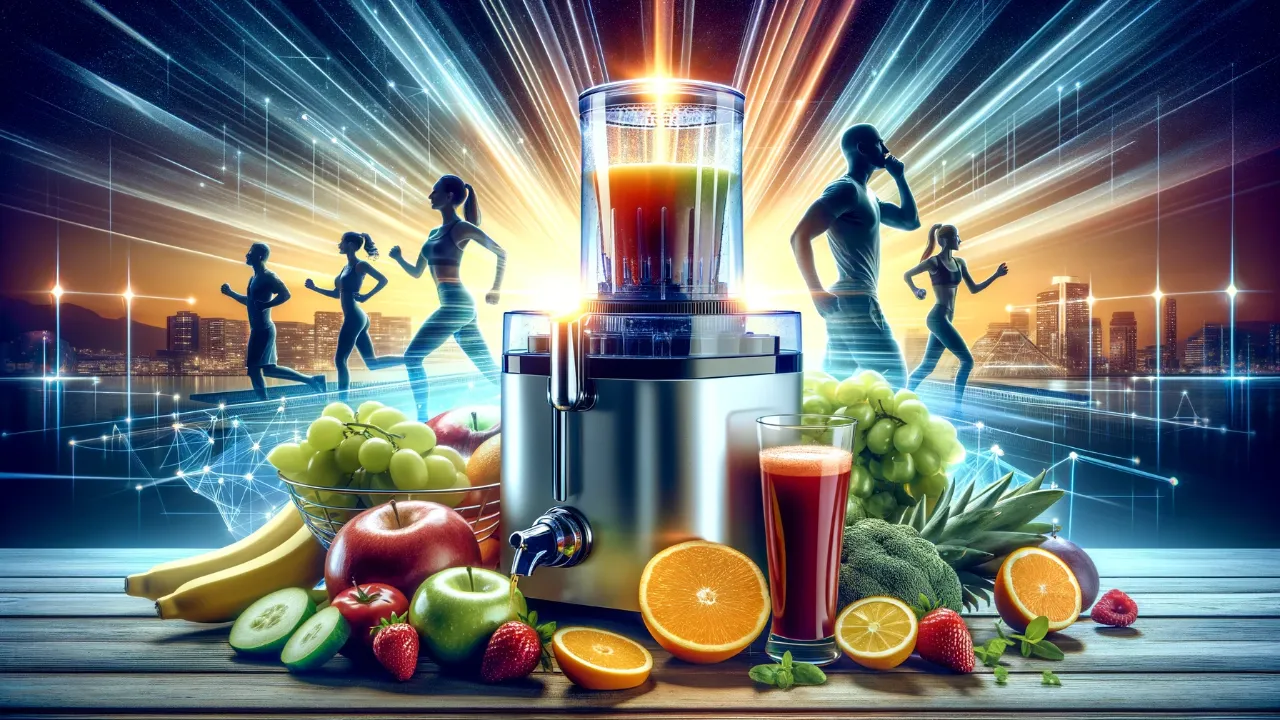Can Juicing Really Boost Your Energy? | Unveiling the Truth Behind the Juice
What IS the truth behind the popular belief that juicing can boost your energy levels. Whether you’re a health enthusiast or simply curious about the hype surrounding juicing, if you’re craving more energy, this post is for you.
With numerous health claims about the benefits of juicing, it’s important to separate fact from fiction and understand the potential risks and benefits of adding fresh juices to your diet. Join us as we explore the science behind juicing and discover whether it’s truly a game-changer for your energy levels.
Key Takeaways:
- Juicing can provide a quick burst of energy: The high concentration of vitamins, minerals, and antioxidants found in fresh juice can provide a rapid boost of energy, making it a great option for a natural pick-me-up.
- It’s important to balance juicing with whole foods: While juicing can be beneficial, it should not replace whole fruits and vegetables in your diet. Juicing can strip away fiber and some nutrients, so it’s important to incorporate a variety of whole foods for overall health and energy.
- Stay mindful of sugar content: Fruit juices can be high in sugar, which can cause an energy crash after the initial boost. Be mindful of the types and amounts of fruits and vegetables used in juicing to avoid excessive sugar consumption.
Understanding Juicing
Obviously, you’ve heard about the benefits of juicing and how it can potentially boost your energy levels. But before jumping on the juicing bandwagon, it’s crucial to understand what juicing really is and how it works. In this chapter, we’ll break down the basics of juicing and provide you with the necessary knowledge to help you make informed decisions about incorporating juicing into your lifestyle.
What is Juicing Exactly?
When it comes to juicing, the process involves extracting the liquid from fruits and vegetables, leaving behind the pulp. This liquid is rich in vitamins, minerals, and antioxidants, providing a concentrated source of nutrients. By consuming freshly squeezed juices, you can boost your intake of essential nutrients and improve the overall quality of your diet.
Varieties of Juices and Their Nutritional Content
There are various types of juices that you can incorporate into your diet, each offering a unique set of nutritional benefits. From green juices packed with leafy greens and vegetables to fruit-based juices bursting with vitamins, the variety is endless. It’s important to understand the nutritional content of different juices to ensure that you are getting the right balance of nutrients. Keep in mind that some juices may contain high levels of natural sugars, so it’s essential to consume them in moderation to avoid potential negative effects on your health.
The Science Behind Juicing and Energy Levels
Some people believe that juicing can significantly boost your energy levels, but is there any scientific evidence to support this claim? Let’s take a closer look at the relationship between juicing and energy to uncover the truth behind the juice.
How Juicing Impacts Metabolism
When you consume fresh fruit and vegetable juices, you are supplying your body with a concentrated source of essential nutrients. These nutrients, including antioxidants and enzymes, can have a direct impact on your metabolism. The enzymes found in fresh juices can help to break down food more efficiently, allowing for better absorption of nutrients. This can lead to an increase in energy levels as your body is able to make better use of the fuel you are providing it with.
Vitamins, Minerals, and Their Role in Energy Production
One of the key benefits of juicing is the high concentration of vitamins and minerals present in fresh juices. These micronutrients play a crucial role in energy production within your body.
For example, B vitamins are essential for converting the food you eat into energy, while minerals like iron and magnesium are involved in oxygen transport and energy metabolism. By consuming fresh juices packed with these essential nutrients, you can support your body’s energy production processes and potentially experience a boost in your overall energy levels.
Common Myths vs. Facts About Juicing
After years of being promoted as a miracle cure for a range of health issues, juicing has its fair share of myths and misconceptions. When it comes to its effect on energy levels, it’s important to separate fact from fiction. Let’s take a closer look at some of the common myths associated with juicing and uncover the truth behind the claims.
Myth Busting: Does Juicing Deliver Instant Energy?
One common misconception about juicing is that it can instantly boost your energy levels. While it’s true that consuming a nutrient-rich juice can provide a quick shot of vitamins and minerals, the idea that it will immediately give you a significant energy boost is not entirely accurate. When you extract the juice from fruits and vegetables, you are removing the fiber content, which plays a crucial role in maintaining steady energy levels.
Without fiber, the natural sugars in the juice can cause a rapid spike in blood sugar followed by a crash, leaving you feeling more fatigued than before. Additionally, the process of juicing can also lead to the loss of some essential nutrients. So while juicing can be a part of a healthy diet, it’s important not to rely on it as a quick fix for boosting your energy.
Analyzing Claims: The Absorption of Juice Nutrients
Another prevalent belief is that the nutrients in juices are more readily absorbed by the body than those from whole fruits and vegetables. This claim is not entirely accurate. While juicing can make certain nutrients more easily accessible, such as vitamins and minerals, it also removes the beneficial fiber and can lead to a less sustained release of energy.
The fiber in whole fruits and vegetables helps to slow down the absorption of sugars and nutrients, providing a more stable source of energy throughout the day. So while juicing can provide a concentrated source of nutrients, it’s essential to recognize that it may not deliver the same long-lasting energy benefits as consuming whole fruits and vegetables.
Balanced Juicing Approaches for Sustained Energy
Your approach to juicing has a significant impact on the energy benefits you can gain from it. Simply drinking large quantities of fruit juice might provide a quick energy rush, but it is not a sustainable or healthy way to maintain your energy levels throughout the day. To truly reap the energy-boosting benefits of juicing, a balanced approach is essential.
Creating a Healthy Juicing Routine
When it comes to juicing for sustained energy, one of the most important factors is to create a healthy juicing routine. This means incorporating a variety of fruits and vegetables into your juices to ensure that you are getting a wide range of nutrients. Aim for a mixture of leafy greens, citrus fruits, and root vegetables to create a well-rounded juice that will provide you with sustained energy throughout the day.
Incorporating Juices into a Balanced Diet
While juicing can be a great way to boost your energy levels, it is important to remember that it should be a complement to a balanced diet, rather than a replacement for whole fruits and vegetables. Juices can be high in sugars and lack the fiber found in whole fruits and vegetables, so it is important to incorporate them into your overall diet in a way that complements your nutritional needs. Incorporating juices into a balanced diet can help to ensure that you are getting the energy-boosting benefits of juicing without sacrificing other essential nutrients.
To wrap up
You have learned that while juicing can provide a quick burst of energy from the natural sugars in fruits and vegetables, it may not be the long-term solution for sustained energy levels. It is important to still consume whole fruits and vegetables for their fiber and other nutrients that are lost in the juicing process. Additionally, be mindful of the quantity and types of ingredients used in juicing to avoid consuming excessive sugars and calories. Overall, juicing can be a part of a healthy diet, but it should not be relied on as the sole solution for boosting your energy levels.


